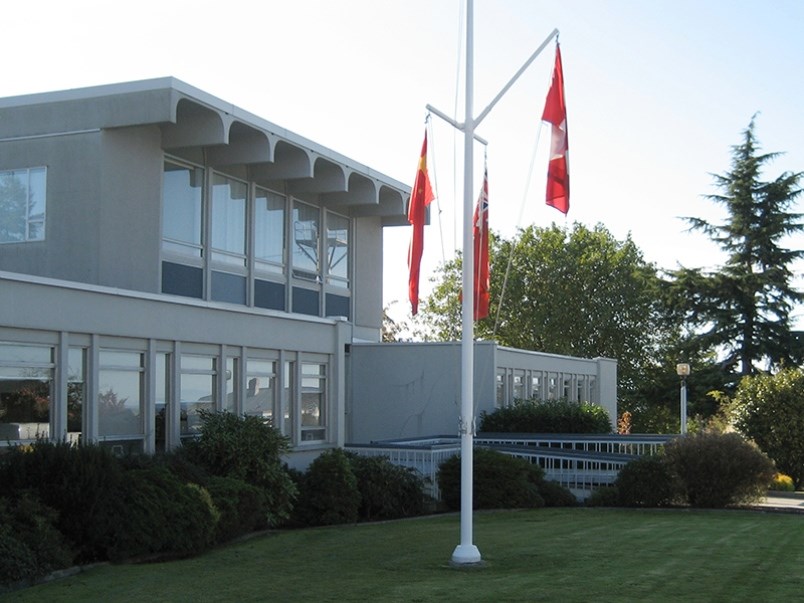Regional social planning has experienced a busy year, City of Powell River councillors were told recently.
Speaking at the November 3 committee of the whole meeting, social planner Kai Okazaki said he was presenting a progress report for the Powell River regional social planning program.
He said the purpose of his report is to provide councillors with information about progress with the program and to publish a report to the public.
The city, qathet Regional District (qRD) and Tla’amin Nation have worked together to develop a regional social plan that identified four priority goals, said Okazaki. These include: suitable, sustainable housing for all people (housing); healthy early childhood development for all children (early years); social cohesion throughout the region (social cohesion); and poverty alleviation and reduced income disparity (poverty reduction).
Okazaki said under each goal, objectives and actions were identified to explore and support the regional social plan. He said this created a recommended work plan for the first few years with the understanding that the plan should be treated as a living document and adjusted annually, based on community needs and community feedback.
Okazaki said the highlights capture progress that would fall under the goals for 2019 and 2020. He said many people were involved in the work and he wanted to acknowledge the efforts of staff and community partners. Collaboration on some of these projects is vital to the sustainability of the regional social plan, he added. The progress report will identify a proposed 2021 work plan that will be presented and recommended at the next social action planning advisory committee.
Highlights in housing include the city and qRD being awarded $80,000 by the Union of BC Municipalities (UBCM) to complete a housing needs report. There was also a $17,000 contribution from Tla’amin Nation to collaborate with the study to better understand existing and future needs of housing in the entire qathet region. Okazaki said this project is well underway with working group staff from each of the local governments, identifying current inventory of housing stocks and future projections of housing needs in the region.
A preliminary data collection and count on the city’s homeless population was completed with staff support from many departments. There was also ongoing support for housing groups identifying new and emerging housing initiatives.
Okazaki said for the proposed 2021 year, it would continue to support some of the housing groups, completing the regional housing needs assessment, explore a rental inventory and feasibility study, and explore having a homeless count on an annual basis.
For early years, highlights include the city and qRD being awarded $50,000 to complete a regional child care project. Okazaki said the project was completed in 2020, where the report provided advocacy support for Vancouver Island University’s early childhood education and care program, as well as support for the Childcare BC new spaces fund.
“As there are many involved members in child care, there will be ongoing support for a child care initiative with our established community groups in our region,” said Okazaki.
“Looking ahead, the main focus will be implementing the child care planning project action plan to monitor progress with community groups and working partners.”
Regarding poverty reduction, a background report was completed to help support local governments identifying efforts in poverty reduction, said Okazaki. He said the city and qRD were awarded $50,000 by UBCM to support development of a regional poverty reduction strategy. Preliminary work has been done on a regional social procurement framework, which was developed to support the city and regional district’s financial services departments.
“The main focus, moving forward will be to develop and implement a regional poverty reduction strategy with the three local governments, community partners, stakeholders and members currently living, or have lived experience of poverty,” said Okazaki.
Some of the key highlights from this year include supporting the community and social services through COVID-19 by establishing a task force. Okazaki said this is a way to reconvene and engage organizations greatly impacted by COVID-19 and serving most of the vulnerable populations. He said a great result of this was facilitating partnerships with local funders to establish a COVID-19 community response fund, which was able to provide $180,000 for local nonprofits that identified as a vulnerable sector though the pandemic.
Okazaki said the city was awarded $25,000 for a safe needle sweep pilot program in partnership with Lift Community Services.
In 2021, work will be done to facilitate collaborations and services that are key in social planning and for the local governments. Okazaki said partnerships with various sectors are important as they provide key community programs and services for the region.
Committee chair and councillor George Doubt said he wanted to say thank you for the work done in the past year.
“All of the efforts you have been quietly doing have made a difference in the COVID-19 times we are in, in a really positive way,” said Doubt. “The reports we are looking at are really setting the stage to do positive things about some of the social problems that people go through.”
The Powell River regional social planning program progress report for 2019 and 2020 was referred to city council for information and to direct staff to publish the report to the public for information.



